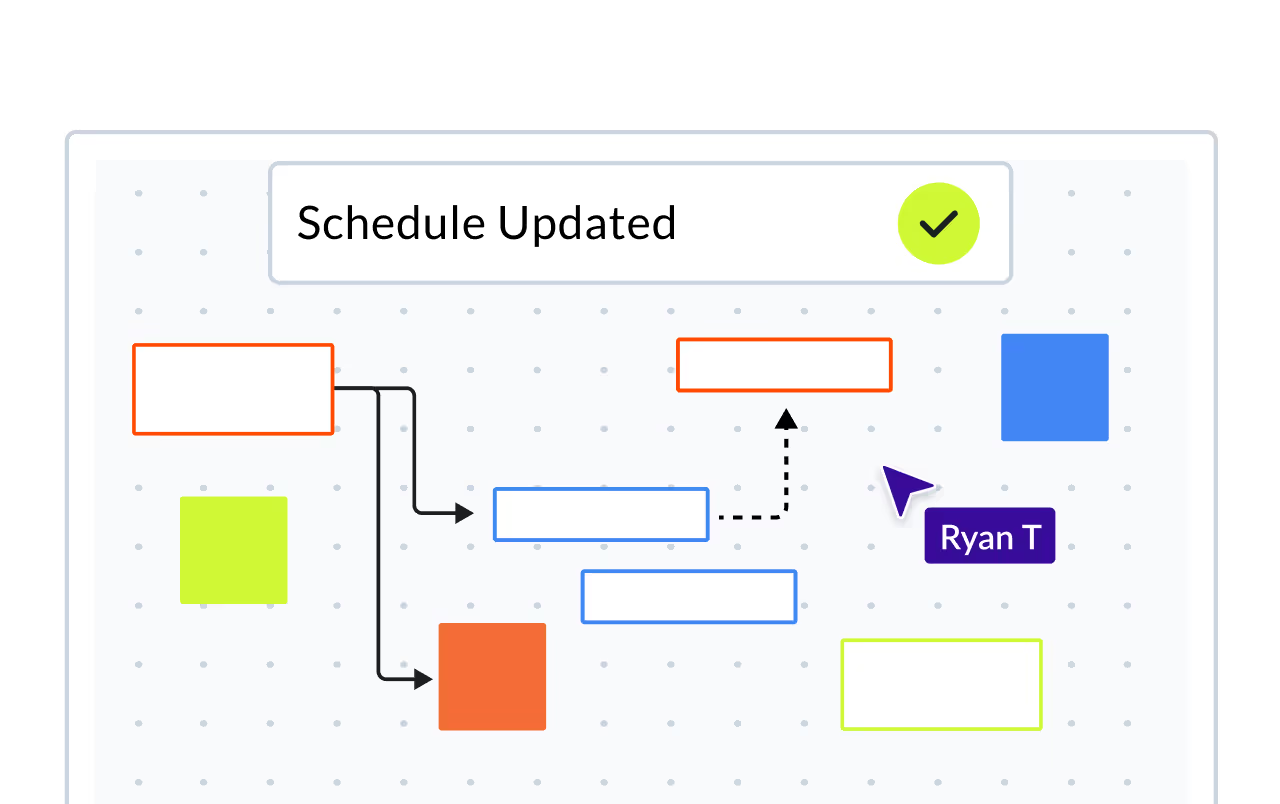
Why AMLI Residential Ditched Microsoft Project for Planera
By moving to Planera’s collaborative, cloud-based platform, AMLI gained faster schedule creation, real-time visibility across teams, and stronger field buy-in on complex, multi-year projects.

Statistic

Statistic

Statistic
Company Overview
AMLI Residential is a leading multifamily developer, general contractor, and property operator with regional offices across the U.S., including Atlanta, Denver, Dallas, and Austin. With a vertically integrated model, AMLI develops, builds, and manages its own communities, ensuring long-term value for residents and investors alike.
Challenge: Siloed and Inefficient Scheduling
Before adopting Planera, AMLI relied heavily on Microsoft Project to manage scheduling across its projects. While functional, this system created several key challenges:
- Siloed Information: Schedules were often stored on individual desktops or shared drives, making it difficult to know which version was current.
- Limited Transparency: Field teams and junior staff had little visibility into master schedules, leading to missed opportunities for collaboration.
- Manual Processes: For field schedules and look-aheads, teams frequently reverted to Excel, requiring weekly manual updates that consumed valuable time.
Ultimately, AMLI needed a collaborative, cloud-based scheduling tool that could unify its teams, support complex projects, and streamline processes across regions.
Solution: Adopting Planera for Cloud-Based Construction Scheduling
In early 2025, AMLI piloted Planera on its 310-unit Littleton, Colorado development—a wrap project with podium retail and a precast garage. This project team was known for being tech-forward and open to innovation, making it an ideal testing ground.
Key Features Driving Adoption
- Canvas-Style Scheduling: Initially met with skepticism, Planera’s visual scheduling quickly won over the team. Assistant Project Manager Jake Berg noted that he built a 2,000-line master schedule in significantly less time than it would have taken in MS Project.
- Look-Ahead Functionality: Planera’s automated three-week look-ahead schedules replaced cumbersome Excel updates, streamlining subcontractor meetings and improving clarity.
- Filtering and Transparency: Teams could filter schedules by scope, trade, or activity, making complex master schedules more accessible and usable in the field.
- Premium Onboarding Support: AMLI’s team credited in-person training sessions with accelerating adoption and making Planera feel immediately valuable.
Results: Improved Transparency, Efficiency, and Buy-In
- Time Savings: Building out schedules in Planera proved faster than in MS Project, freeing up time for higher-value work.
- Field Adoption: The ability to easily generate and share look-aheads increased buy-in from superintendents and field staff, even those initially skeptical.
- Transparency Across Teams: With schedules centralized in the cloud, junior staff, field supers, and project leaders gained visibility, improving collaboration and conversations around logic and sequencing.
- Transition Away from MS Project: Within months, AMLI committed to using Planera as its primary scheduling tool, phasing out MS Project updates.
- Avoiding Schedule Compression: With the development of more efficient, effective schedules using Planera, AMLI is also avoiding the increased costs and schedule delays that stem from schedule compression.
Looking Ahead
Following the success of the Littleton work, AMLI plans to roll out Planera across additional projects in its regional markets. AMLI aims to establish Planera as a company-wide scheduling standard for both master and field schedules and will transition away from its long-time use of Microsoft Project.
Conclusion
By adopting Planera, AMLI Residential transformed its scheduling from siloed, manual, and inconsistent to collaborative, cloud-based, and efficient. The result: faster schedule creation, improved transparency, and stronger buy-in from both office and field teams.
Planera’s purpose-built approach for construction scheduling has set the foundation for AMLI to scale its use across future projects, ultimately driving greater efficiency and collaboration in multifamily development.

"Planera has given us a faster, more transparent way to manage complex schedules. The buy-in from our team has been incredible, and we’re already seeing the benefits in efficiency and collaboration."

About
You deserve better scheduling software.
Request a Demo


















